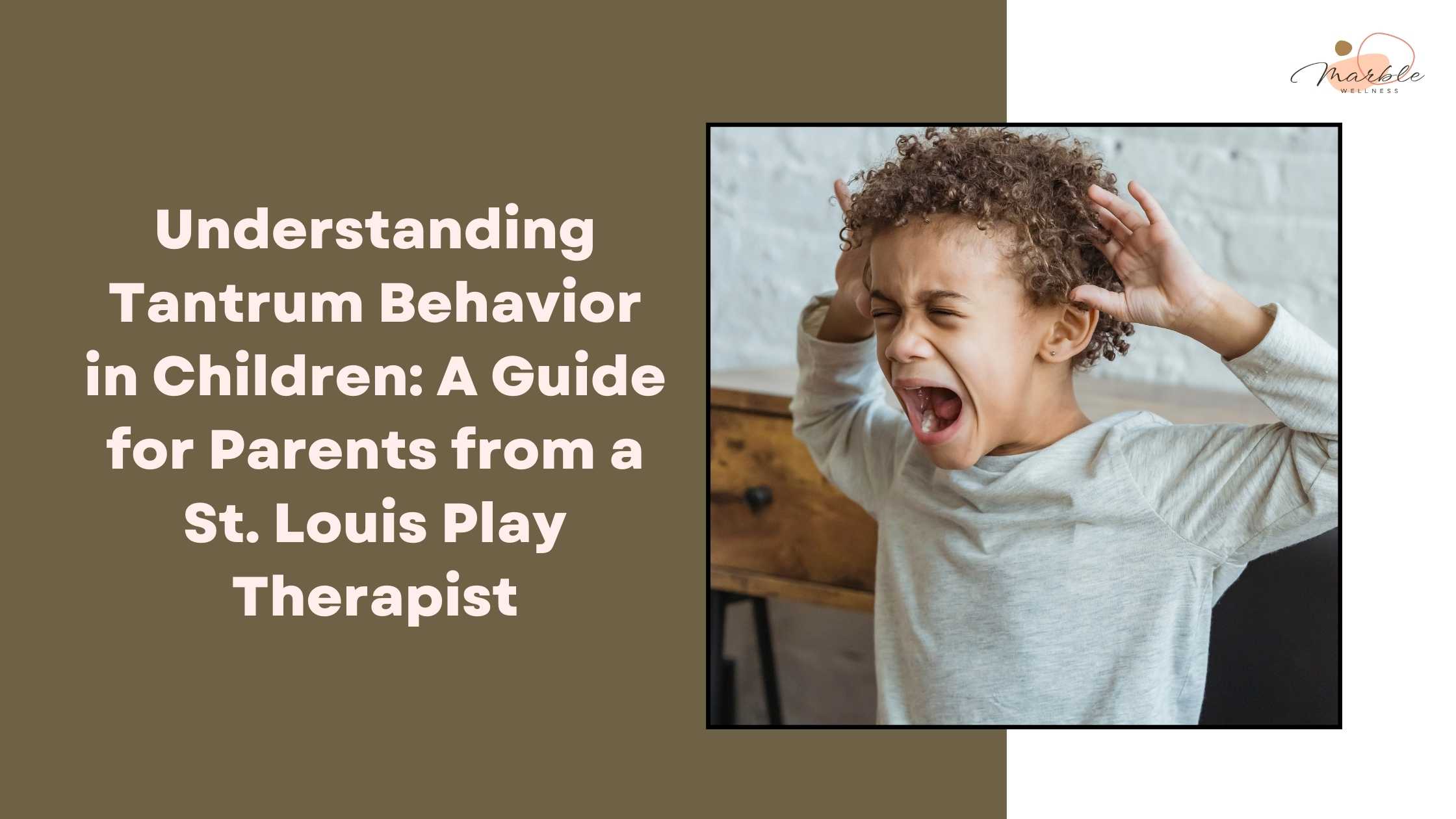Hey there, parents and caregivers! If you’ve ever found yourself baffled by your child’s epic meltdown over something as small as a broken crayon, you’re not alone.
Tantrums can be confusing and exhausting. In some environments, they may even feel embarrassing. If you’re a mom reading this and on a harder postpartum journey, the tantrum behavior of your children may trigger severe postpartum anxiety or other negative emotions.
But, it’s also really important to realize tantrums are a very normal part of child development. Let’s dive into why tantrums happen, how they can be connected to anxiety, and some tips for managing them.
Plus, we’ll explore how therapy can be a game-changer for both you and your child!
What Are Tantrums and Why Do They Happen?
First, let’s understand what tantrums are. Tantrums are intense bursts of emotion, usually involving crying, yelling, stomping, and sometimes even hitting or throwing things. They typically occur in children between the ages of 1 and 4 and are a normal part of development.
But why do they happen?
Young children are still learning how to navigate their emotions and communicate effectively. They might not have the words to express their frustration, sadness, or fear, so they resort to what they do know: having a tantrum. It’s their way of saying, “I’m overwhelmed and I need help!” Think of it as an emotional SOS.
Tantrums and Anxiety: What’s the Connection?
Now, let’s talk about anxiety. Anxiety isn’t just an adult problem; kids experience it, too. For children, anxiety can be triggered by various things like changes in routine, new experiences, or even just trying to understand the world around them.
When a child feels anxious, their emotions can become overwhelming, leading to — you guessed it — tantrums.
For example, a child might have a meltdown when it’s time to go to a new daycare. The anxiety of facing an unfamiliar environment can be too much for them to handle. Recognizing that anxiety can fuel tantrum behavior helps us understand that these outbursts are not just about misbehavior; they are cries for help.
6 Tips for Parenting During Tantrum Behavior in Children
Okay, so tantrums are normal and often tied to anxiety. But what can you do when your child is in the throes of a meltdown? Here are some tips to help you navigate these challenging moments:
1. Stay Calm
Easier said than done, right? But staying calm helps de-escalate the situation. Take deep breaths and remember that your child’s tantrum is a normal part of their development.
2. Acknowledge Their Feelings
Let your child know that you see they are upset. Say something like, “I can see you’re really angry right now.” This validation helps them feel understood and can sometimes reduce the intensity of the tantrum.
3. Give Them Space
Sometimes, children need a little space to cool down. Ensure they are in a safe environment and let them know you’re there when they’re ready to talk or need a hug.
4. Offer Comfort
Once your child begins to calm down, offer comfort and reassurance. A hug, a soothing voice, or a favorite toy can help them feel secure.
5. Set Clear Boundaries
While it’s important to be understanding, it’s also crucial to set clear boundaries. Let your child know that while it’s okay to be upset, it’s not okay to hit or throw things.
6. Teach Coping Skills
Help your child learn ways to manage their emotions. Simple techniques like taking deep breaths, counting to ten, or using words to express their feelings can be very effective.
Pro tip: Do this yourself when you start to feel your own big emotions! If your child, who looks up to you for so much, sees you using these practices, they will be more likely to us them also!
How Therapy Can Help With Tantrum Behavior in Children
If tantrums and anxiety are a regular part of your child’s life, therapy can be incredibly helpful. Here’s how:
1. Identifying Triggers
A therapist can help identify what specifically triggers your child’s tantrums and anxiety. Understanding these triggers is the first step in managing them. It can allow parents to know when a plan is helpful and also help the child feel more in control because they also have a plan.
2. Developing Coping Strategies
Therapists teach children effective coping strategies to handle their emotions. This might include mindfulness exercises, relaxation techniques, or creative outlets like drawing or storytelling.
3. Improving Communication
Therapy can help children develop better communication skills, so they can express their feelings in a healthier way — this can significantly reduce the frequency and intensity of their tantrum behavior.
4. Parental Support
Therapy isn’t just for the child; it’s for parents too. Therapists can provide guidance on how to support your child during tough times, set effective boundaries, and create a nurturing environment at home.
5. Building Confidence
Therapy helps children build confidence and resilience. They learn that it’s okay to have big feelings and that they can handle them with the right tools.
Final Thoughts
Tantrums are a normal part of childhood, but understanding their connection to anxiety can change how we respond to them. By staying calm, acknowledging your child’s feelings, and setting clear boundaries, you can help your child navigate their emotions.
Therapy is a valuable resource that can provide both you and your child with the support and strategies needed to manage tantrums and anxiety effectively.
So next time your little one has a meltdown, take a deep breath and remember: it’s all part of the journey. And with a bit of patience, understanding, and maybe some professional help, you’ll both come out stronger on the other side.
Find a Play Therapist in St. Louis
If you live in St. Louis and are looking for ways to help your children navigate their emotions and tantrum behavior, we are here to help.
Contact Us!

Additional Counseling Services at Marble Wellness in St. Louis, MO and Chicago, IL
Counseling services are designed to help set you on a path of living a more fulfilled, calm, and happy life.
St. Louis
Our St. Louis team of therapists has a variety of training backgrounds and areas of expertise. We specialize in anxiety, depression, grief, chronic illness, therapy for men, couples, and maternal overwhelm. Our practice also helps new moms with various postpartum concerns, moms in the thick of parenting, and moms with teens. We can also chat from wherever you are in the state with online therapy in Missouri and online therapy in Illinois. No matter where you are in your journey, we would love to support you.
Chicago
Our Chicago team of therapists offers a wide range of mental health services to help our clients through the different challenges and hurdles in their lives. In addition to anxiety, depression, grief, therapy for men, and maternal overwhelm, we specialize in professional burnout, therapy for breakups, and love partnering with working moms.



